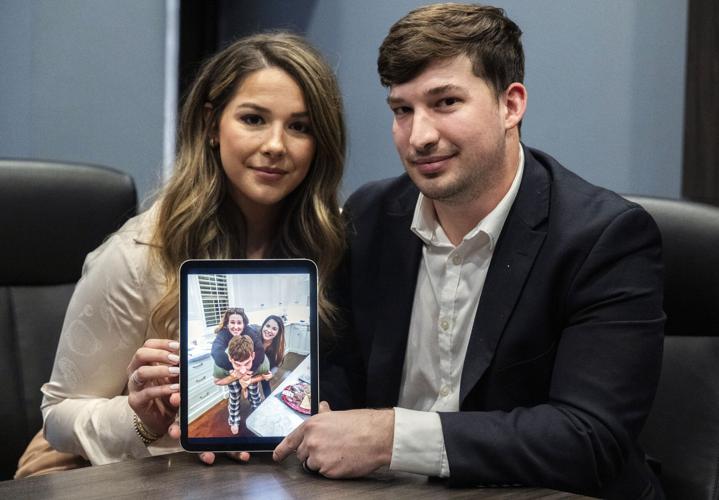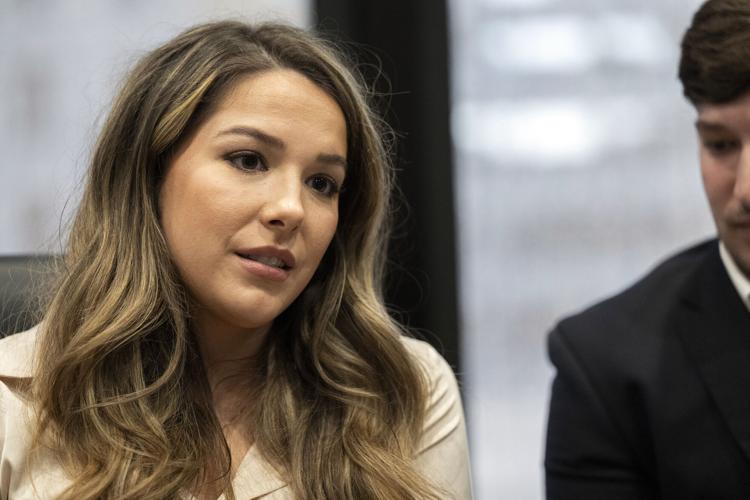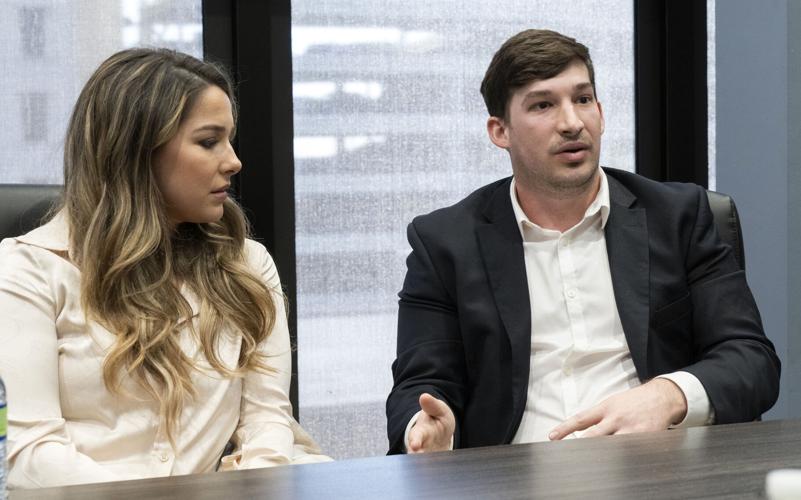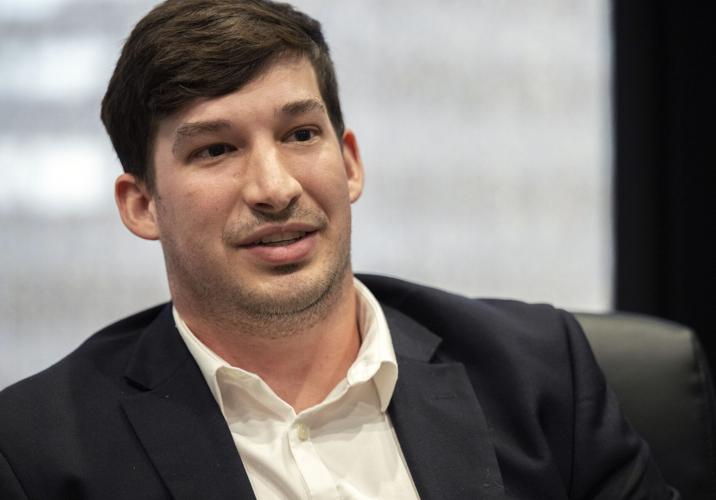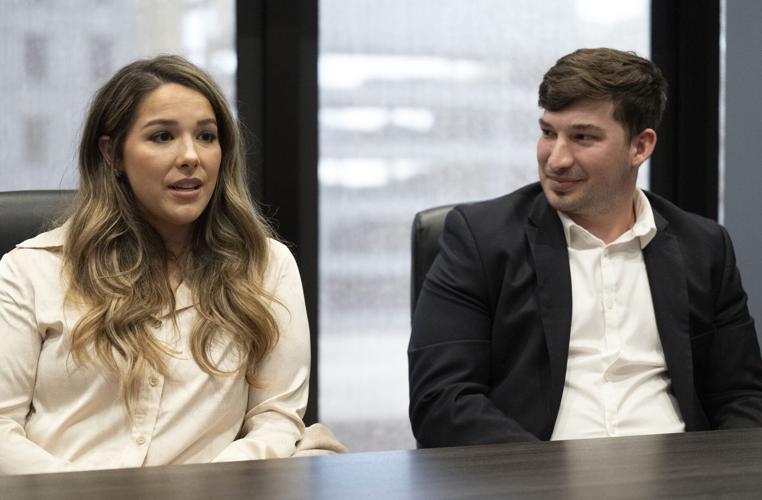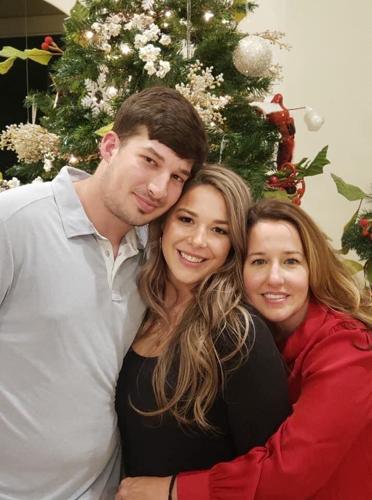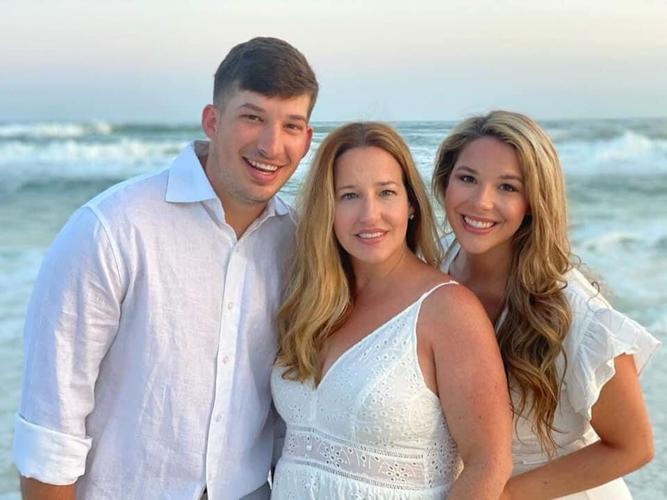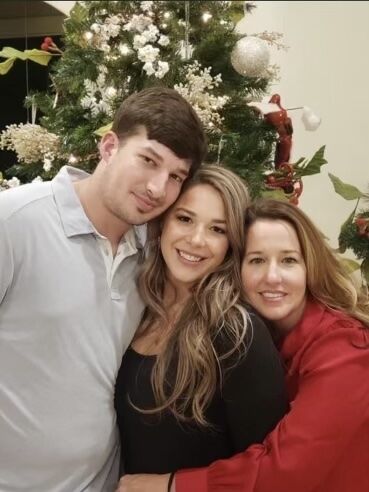Siblings from Broussard were awarded more than $200 million in damages by a Lafayette judge in mid-February, in what’s thought to be one of the first uses of a Louisiana law that allows punitive damages to be sought against domestic abusers.
Seeking justice after the 2023 death of their mother, Katherine Mashburn, Malorie and Drake Vincent brought the lawsuit against the estate of their stepfather, Eric Babineaux. Babineaux staked out Mashburn's home in April 2023 before fatally shooting her and then taking his own life; three months earlier, Mashburn had filed for divorce from the 53-year-old.
Instead of strictly seeking compensation for their loss, the siblings' legal team employed a 2014 Louisiana law that allows punitive damages to be sought against domestic abusers. The money assessed is above and beyond what’s required to compensate victims for actual harm and is intended to deter similar conduct in the future.
On Feb. 15, following a single day trial, 15th Judicial District Court Judge Royale Colbert issued a verdict awarding the family $216 million in damages, with $200 million of the award in exemplary damages.
The Vincents hope the verdict and their mother’s story will empower other domestic violence survivors to seek help and spur the community to take greater action on issues of domestic violence.
'She took care of everybody’
In his 16 years representing clients, Andrew Quackenbos of Domengeaux Wright Roy & Edwards in Lafayette said he’s never seen a closer family bond than that shared by Mashburn and her children.
“It really is remarkable how much they were in contact with their mother, how much time they spent together,” Quackenbos said.
Mashburn raised the siblings primarily as a single mother, practicing with them for sports, playing with them outside, painting and creating with them, the siblings said. Mashburn prided herself on filling her children’s lives with positive experiences and strong memories, even if times were tough, they said.

From left, siblings Drake Vincent and Malorie Vincent with their mother, Katherine Mashburn, in an undated photo.
The Vincents grew up at their grandfather's machine shop and fulfilled his dream of turning it into a family business. As adults, they followed their mother into the business, Drake Vincent as an engineer and Malorie Vincent as an accountant, they said.
Malorie Vincent said she and her brother have thrown themselves into work in the months since their mother’s murder, using the business’s needs as a distraction from their grief.
“I think in a way it’s like all we have left of them...It’s what they worked their whole lives for. It’s like a small piece of them. They put all their blood, sweat and tears into it,” Malorie Vincent said.
Mashburn had a big personality — she was loud, assertive, opinionated and loved to laugh and dance, her children said. She not only raised her two biological children, but also helped raise a couple of the Vincents’ cousins and for a time took in a close friend going through a divorce, they said.

From left, Drake Vincent, Katherine Mashburn and Malorie Vincent in an undated photo.
“She took care of everybody, and if someone needed a place to stay she took them in... She treated everybody that knew her like family. Family is a loose term; it means more than blood,” Drake Vincent said.
When Drake Vincent got married in 2021, he said, Mashburn began looking forward to having grandchildren. She said she wanted to pass the family business on to her children and be a full-time grandmother. Knowing Mashburn won’t get that chance, and won’t be there when his children are born, is painful, Drake Vincent said.
A stakeout, an early morning attack
Babineaux and Mashburn married in February 2012 and separated almost 11 years later, when Mashburn filed for divorce in January 2023.
Court records show Mashburn was granted use of their shared home during the divorce proceedings; her mother, who has the neurodegenerative disease ALS, and Drake Vincent and his wife lived on the same street.
In the days leading up to the shooting, investigators found evidence that Babineaux left his Jeep with a family member in Kenner and rented a Ford Bronco, which he drove to Lafayette Parish. He stayed in a hotel until the night of April 16, when he drove the SUV to a business less than a mile from Mashburn’s home on North Girouard Road, police reports said.
Babineaux was captured on license plate reader and surveillance cameras. Based on surveillance footage time stamps, investigators concluded Babineaux staked out Mashburn’s home for hours in a grassy field beside the residence before the attack.
Around 4:30 a.m. April 17, surveillance footage showed Babineaux approach Mashburn’s bedroom window. The 53-year-old was dressed in dark clothing and equipped with an air horn, eye and ear protection, flashlights, two firearms and bullets. He then fired several times through Mashburn’s window, and seconds later pushed in the broken glass to crawl through the window and into the home, the police reports said.
Once inside, he shot Mashburn again and then shot himself. An investigator with the Lafayette Parish Coroner’s Office determined Mashburn was shot three times, the reports said.
Around lunchtime on April 17, Drake Vincent found his mother and stepfather’s bodies after he went to investigate when she didn’t report to work or get in touch with anyone.
'It allows people like us to not take it on the chin’
With no criminal recourse for Babineaux’s actions, the Vincents turned to Louisiana’s Civil Code.
Under statute 2315.8, exemplary damages can be awarded when a person acts with “wanton and reckless disregard for the rights and safety of a family or household member” and causes “serious bodily injury or severe emotional and mental distress.”

Malorie and Drake Vincent talk about their mother Katherine Mashburn Monday, February 19, 2024, at the offices of Domengeaux Wright Roy & Edwards in Lafayette, La.
The law was passed in 2014 as part of a package of domestic violence-focused bills sponsored by then-Sen. J.P. Morrell and then-Rep. Helena Moreno, and championed by United Against Domestic Violence, a coalition rallied by the United Way of Southeast Louisiana, Times-Picayune reporting said.
The law added domestic abuse to a select category of situations where victims can seek exemplary damages in Louisiana courts, including certain drunken driving cases, hazing resulting in death and child sexual abuse, LSU Law Professor and LSU President Emeritus Thomas Galligan, Jr. said.
Having an avenue for action helped the Vincents feel less helpless. Not having anyone to direct their pain toward — no one to yell at or demand answers of — has been difficult, they said.
“It allows people like us to not take it on the chin and just walk away with it. At least you’re able to throw some kind of punch back,” Drake Vincent said.
Quackenbos, who led the legal team representing the Vincents, said he believes this is one of the first applications of the 2014 law in the state. While it’s possible it’s been employed at the district court level before, Quackenbos’s team could not find evidence of the law being reviewed at the appellate court level, he said.
The Feb. 15 trial focused solely on the damages; Babineaux was found liable in a pre-trial judgment, Quackenbos said.
Both sides argued about whether exemplary damages could be awarded against Babineaux’s estate, or whether the opportunity for exemplary damages died with him. Quackenbos argued the 53-year-old became liable the moment he shot Mashburn, and the obligation to answer for that transferred to Babineaux’s estate when he died.

Attorney Andrew Quackenbos talks about the lawsuit involving the death of Katherine Mashburn at the hands of her estranged husband Monday, February 19, 2024, at the offices of Domengeaux Wright Roy & Edwards in Lafayette, La.
In his filings, Quackenbos likened awarding exemplary damages against Babineaux’s estate to a “financial death penalty” — while he escaped likely life imprisonment or a potential death penalty by taking his own life, he could not escape all accountability, he said.
Quackenbos said there’s value in posthumous repercussions as a general deterrent because different people have different motivations. It’s possible that an abuser may not fear being held personally responsible but would have pause if their property was threatened and their heirs and beneficiaries face losing out, he said.
Galligan said some states decline to award exemplary damages against defendant’s estates, but Louisiana hasn’t skewed firmly one way or the other on the issue. The inclusion of exemplary damages in Louisiana’s civil code developed over the past 40 to 50 years, with statutes being added piecemeal, he said.
Since exemplary damages are only allowed in certain circumstances, there are fewer cases at all levels where exemplary damages are awarded, meaning questions like the issue of exemplary damages being awarded against an estate have not had precedent set by higher courts, Galligan said.
The facts of a case don’t have to be as severe as Mashburn’s to trigger the law, Quackenbos said. The attorney said he’s hopeful other lawyers will be encouraged by the Vincents’ case and consider employing the law when handling domestic abuse cases.
“There are lawyers who sometimes won’t file things because they’re worried how it’s going to be perceived. Maybe it’s considered frivolous because no one has done it before, or a judge might think it’s out of line. You’ve got to take the step. This was a case where I think, frankly, it was easy to take the step. Sometimes you need that to set people on their way,” Quackenbos said.
Attorney Gary McGoffin, who represented Babineaux’s estate, said the estate will not appeal the trial verdict.
'It shouldn't have to get to this point’
For the Vincents, the verdict's importance is in what it symbolizes: that domestic violence will not be tolerated in Louisiana, and that victims have avenues to reclaim power.

From left, siblings Drake and Malorie Vincent with their mother, Katherine Mashburn, in an undated photo.
“Growing up my mom was my hero and leading up to this I saw her as a victim. It sucks. You’ve gone your whole life thinking your mom is a hero and to have that taken from you is kind of unexplainable... With this judgment, it can do a lot of good, and it just makes it feel like my mom’s death wasn’t for nothing,” he said.
The siblings, both in their late 20s, said they hope their mother’s story sparks action from the community, including more attention to domestic violence issues by lawmakers, and encourages survivors in abusive relationships to seek help.
“It shouldn’t have to get to this point. It should be taken seriously by the first report,” Malorie Vincent said.
Their hopes are echoed by domestic violence advocates, including Faith House of Acadiana’s Executive Director Billi Lacombe, who helped lobby for passage of the 2014 law and was in the courtroom Feb. 15 when Colbert announced his verdict.
Domestic violence is a prevalent and persistent problem in Louisiana.
Between 1996 and 2020, Louisiana ranked in the top 10 states with the most women and girls killed in homicides every year except 2008, according to the Violence Policy Center.
In 2020, Louisiana had the fifth highest rate of females killed compared to population, with 52 women and girls killed. The victim-offender relationship could not be confirmed in all cases, but in at least 42% of cases the victims were killed by a known intimate partner or ex-intimate partner, the nonprofit reported.
Galligan said civil recourse can be a useful tool for survivors because it can be pursued on top of criminal charges or separately from them. The burden of proof in civil court is lower than criminal court, meaning a case that might be difficult to make in criminal court could have more traction in civil court, he said.
Lacombe said it’s important survivors have as many tools as possible at their disposal when escaping abuse and rebuilding their lives. Domestic abuse survivors often suffer lingering repercussions, such as mental and physical health issues, that don’t abate when the abuse stops, she said.
“[An abuser] may get a small sentence in court for a domestic abuse battery, like a 30-day suspended sentence. That type of sentence to a victim feels like a slap on the wrist... But with these civil impacts, an abuser could carry a judgment with them for many years if it’s awarded in a case like this,” Lacombe said.

